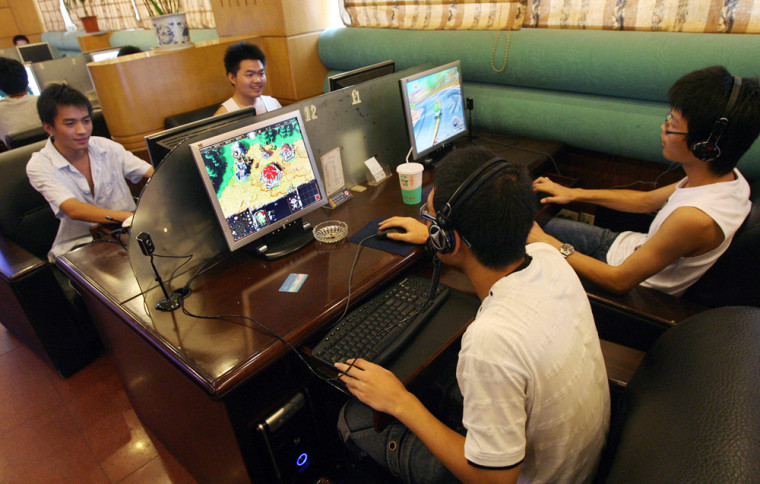Online games may seem like child's play, but in China, it's mostly the realm of adults, and it's big business for gaming companies.
Just how hot China's online gaming market is can be seen in an initial public offering last week. Amid the market turmoil, Chinese online gaming company Perfect World went public, with a 28 percent first-day pop.
In China, online gaming has reached a frenzy, and that means growing profits for the companies who can capture the most gamers, whose habits range from hobby to, literally, addiction.
The wild card for all the online game companies: additional government intervention. The director of an Internet addiction clinic says he meets with government officials often and believes there will be more regulations next year.
Harold Zhang doesn't consider himself an online game addict, even though the Beijing lawyer spends about two hours a day online — four hours a day on weekends.
He says he loses sleep to gaming and has even lost girlfriends.
“For me, if you don't let me play from starting tomorrow it feels like something from life is missing,” he said.
Zhang is one of millions in China who've switched off real life to go online instead, to play what are known as massively multiplayer online role playing games.
“Playing games is the same as every other kind of entertainment, like going to a movie or playing badminton,” he said.
And that makes online gaming a burgeoning business in China, where research firm IDC estimates revenues will double by 2010.
Many companies, like Shanda Interactive, give away access to the games but charge for items that help players rack up points. Shanda also expects to add in-game advertising next year.
Its president Tang Jun says making money is all about the numbers.
“We have 20 million active users, and we have over 300 million registered accounts,” he said. “I’m sure some spend more or less time or more or less money, but when you combine them together it's phenomenal.”
The average player spends two to three hours online a day, and surprisingly, the majority are adults, who've got the money to spend.
Active players on average spend 59 RMB ($8) per month, bringing the total market to $816 million last year.
But what is so profitable has become a social problem. Last month, the government mandated that games have monitoring software that warns under-18 gamers to exercise at the three-hour mark. At five hours, it's game over.
When a warning isn't enough, the next stop may be here: the Internet addiction clinic in Beijing, where patients, typically teens, come to be cured at a steep cost of $40 a day through medication and military-like training.
Some may be able to fix on their own when they are older, but most patients get worse if they can't get help because they can’t study anymore, they become a danger to the society and end up in jail.
Only 10 percent of gamers are under 18. Many more are like Harold Zhang, who thinks his hobby could turn into a habit.
“I worry about it every single day,” Zhang said.
Just one customer of 300 million, and counting.
